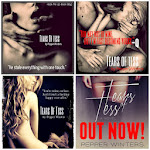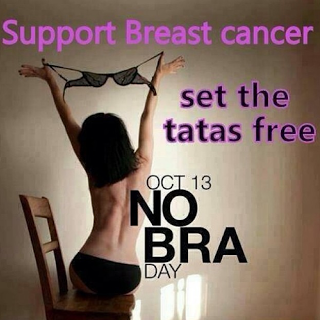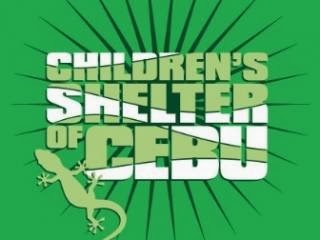
How did you develop your writing? I started with journal writing, which allows a writer to be totally free to put into words whatever is springing forth from inside, and over the years I took a number of workshops at a wonderful writers’ studio in Florence, Massachusetts called Writers in Progress. I’ve also had my first drafts critiqued, which means they’re read by a professional editor, and comments come back to show the writer what needs work. The first editor I worked with in this way taught me incredible stuff about how to write. Then I wrote and wrote and wrote, and rewrote and rewrote and rewrote.
I can’t remember who, but some famous writer once said, “You have to write a million words before you become a good writer.” I think that’s absolutely true.
What do you hope people will take away from your writing? How will your words make them feel? After one of my presentations on emotional abuse and its tendency to hide behind closed doors in dysfunctional families, a young woman came up to me and said quietly, “I didn’t know this happened to anyone else!” I said to myself, “That’s exactly why I wrote the book: to let people know that they were not alone in their misery and confusion.” I hope that my words will validate others’ experiences and show the truth that is under the façade in families and in our society. Sometimes I feel like the little boy who said, “The Emperor isn’t wearing any clothes!”
If you could do any job in the world what would you do? Write.
What are you most passionate about? What gets you fired up? The idea that most people have so many repressed feelings that they’re not really living their lives; the “shadow” of those repressed feelings is running their lives instead. Most people don’t live according to their inner voice – they base their lives on a regime that’s left over from childhood, which is always somebody else’s beliefs about life.
What makes you angry? Child abuse, emotional abuse, domestic violence, school violence – because I feel that these issues could be eliminated if our society allowed people a safe way to express their emotions without judgment, so abusers could express their feelings openly instead of having to dump their anger on innocent people. This has totally been the basis of my own journey of healing: to find out what I’m feeling, what I stuffed down for fifty years, and to express it without judging myself or dumping it on others.
How do you work through self-doubts and fear? I keep asking myself what I’m really afraid of until I figure out the root issue, which is usually something related to childhood, and then I ask myself, is that really true now? If it’s not, I try to put it behind me. If it is, I try to figure out a solution to the problem that’s causing the fear. Over the years, I’ve done enough therapy that I don’t have so many issues any more with self-doubt, but when I do, I remind myself that I handle life pretty well: there are groceries in the house, I live in a fairly nice place, people enjoy my company, etc.
I’ve had to learn how to shout down those inner critic voices – there were so many of them left over from my childhood. For awhile, I would just say, “Shut up!” and I tried ignoring them. But they’re very powerful. Lately I’ve been saying to them, “If you can’t say anything nice, don’t say anything at all.” So far that’s working pretty well.
How do you think people perceive writers? This is a great question! There’s a really interesting split between writers like Stephen King and Danielle Steele – those writers who have made it to the top of their field – and the public view of “most other writers,” which is often that they are disorganized, sloppy, maybe even somewhat mentally ill people who just want to sit around all day and write instead of working.
I have two problems with that: one is that writing – really good writing – is one of the hardest kinds of “work” in the world, because it takes real dedication; and the other is that the middle is left out of that continuum in the public view. There are many writers who aren’t household names yet who put out excellent work and are absolutely worthy of the designation “excellent writer.” I hope one day that the contribution writers make will finally be recognized. Without writers, there would be no books, no magazines or newspapers, and really, no internet.
How do you feel about self-publishing? I published my first two books with a traditional publisher, and the most recent ones were self-published. Although self-publishing is an incredible amount of work, I prefer it because I have control over the finished product, the cover, the pricing, and how the book is marketed. Traditional publishers are useful for getting the word out about the book when it’s first published, but if it doesn’t make the bestseller list in like two weeks, they don’t promote it anymore, and the marketing is left up to the writer anyway.
Plus, you only get about 5% of the net royalties if you publish with a traditional publisher, which often comes out to somewhere around 72 cents a book, whereas if you calculate carefully, you can make several dollars per book by self-publishing, even if you price it less than the traditional publisher would. All they’re interested in anyway now is authors who are already household words. They won’t have anything to do with new or even mid-market writers – they want writers who already have a platform.
Who is your publisher? I work with a great publisher in Maine, Maine Authors Publishing. They’ve developed a co-op style of self-publishing that works really well for authors, and they’re very knowledgeable and reasonably priced. Plus, I’ve met them, and I like them all very much – it’s not just a contact-by-email process with people I’ll never meet.
What is your favorite quote, by whom, and why? “The body never lies” is my favorite quote by Alice Miller, and I like it because it tells us exactly where we will find the truth of our lives, and the truth about who we are.
How has your upbringing influenced your writing? My childhood is the grist for my writer’s mill. The need to tell the secrets that we hid in my family, and to give and receive validation for a story that many of us experienced, has definitely been one of the primary driving forces in my writing.
Have you ever had writer’s block? If so, what do you do about it? I rarely have writer’s block, but I’d like to offer some tips for overcoming it. Often, it means a writer is afraid to tell (or face) the truth; sometimes there’s a voice in the writer’s head saying, “It’s not good enough!”; sometimes we’re worried what people will think. In my mind, the best remedy is to search for “writing prompts” online, pick one or two, and write wildly and quickly about whatever comes to mind without judging or editing – just throw the words on the paper – then take out your project and work on it.
You have to get rid of the “inner critic” when you’re writing. The inner critic only comes in handy, I think, when you’re rewriting or editing your work. Another cause of writer’s block is that your writing is moving to a new level, and you’re just not quite there yet – a philosophy that I read in a great book by Dennis Palumbo, Writing from the Inside Out.
What are your goals as a writer? My goal is to become self-sufficient as a writer, so my income comes through my writing – then I could spend the bulk of my time and energy on writing and publishing my books. At the moment, I earn a large portion of my income from editing and manuscript critique, which I have a lot of experience in and I enjoy, but I feel I am “falling behind” in my writing: too many project ideas and not enough time to fulfill them.
What books have most influenced your life? Books by Alice Miller, like For Your Own Good and John Bradshaw, Healing the Shame that Binds You – and innumerable other books on living authentically and healing from trauma. I also love the wild inspiration of Martha Beck’s books, especially Finding Your Own North Star.
Do you have any advice for writers? Becoming successful will probably take about three to ten times as much time as you think it will. There are somewhere around 200,000 books being published every year now, so it doesn’t really work to just put a book up on Amazon and wait for the readers to roll in, unless you have about 300,000 loyal Twitter followers. You need to be emotionally and mentally prepared for the fact that it’s going to take a long, long time, and probably many published books, before you reach the success you envision. There are exceptions, but they are very, very rare.
And write for yourself – write what you want to write, and how you want to write it. That’s what will keep your passion going. And for goshsakes, be sure to have a professional editor edit your work before you publish it! Many otherwise good books are abandoned by readers after the first few pages because there are too many typos, misspelled words, grammar issues, and ineffective sentences. Also, if you’re going to publish a book, do several weeks of pre-pub marketing to build “buzz” and interest in the book before you publish it. Generally, the higher your Amazon rankings are in the first few days, the better the book will do.
If you could leave your readers with one bit of wisdom, what would you want it to be? Live for yourself. Follow your heart and your inner voice, the one that tells you what you’re meant to do in this life, instead of the one that tells you what you “should” do. Don’t ever listen to what others tell you you should do; find that information within or in relationship to whatever Higher Power you believe in. Everyone has a special and unique gift, and the only one who can uncover yours is you. Have as much compassion for yourself as you do for others – life is hard, it can be a struggle, especially as a writer, and we need to treat ourselves gently to bring our gifts out in the best possible way.
When you wish to end your career, stop writing, and look back on your life, what thoughts would you like to have? I really can’t imagine stopping writing, but if I did, here’s what I’d like to think: that I wrote and published work that I totally believed in, work that came from my heart and soul as an expression of the Divine Creative Force, work that helped other people and helped to expand awareness in the world. And I sure would like to think how grateful I am that I was finally able to make my living from writing.
Buy Now @ Amazon
Genre - Self Help/Abuse/Bullying
Rating – G
More details about the author















0 comments:
Post a Comment